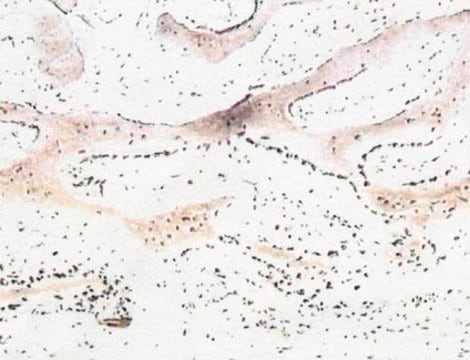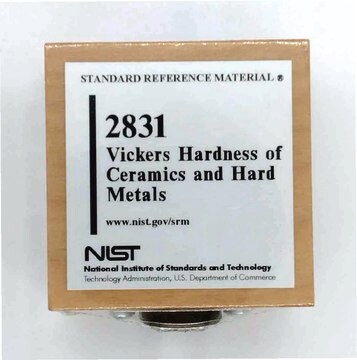MAB2252Z-I
Anti-Integrin β1 Antibody, clone N29 (Azide Free)
clone N29, Chemicon®, from mouse
Synonym(s):
CD29, MAB2252
About This Item
Recommended Products
biological source
mouse
Quality Level
antibody form
culture supernatant
antibody product type
primary antibodies
clone
N29, monoclonal
species reactivity
human
manufacturer/tradename
Chemicon®
technique(s)
cell culture | mammalian: suitable
flow cytometry: suitable
immunohistochemistry: suitable
immunoprecipitation (IP): suitable
western blot: suitable
isotype
IgGκ
NCBI accession no.
UniProt accession no.
shipped in
wet ice
target post-translational modification
unmodified
Gene Information
human ... ITGB1(3688)
Specificity
Immunogen
Application
Immunoprecipitation: A representative lot of this antibody clone was used in immunoprecipitation.
Immunohistochemistry: A representative lot of this antibody clone was used in immunohistochemistry on frozen sections.
Flow Cytometry: A representative lot of this antibody clone was used in flow cytometry.
Functional Activity Assay: A representative lot of this antibody clone was used to stimulate adhesion of cells to extracellular matrix proteins (Wilkins, J.A. et al., 1996).
Optimal working dilutions must be determined by end user.
Cell Structure
Integrins
Quality
Target description
Physical form
Storage and Stability
Avoid repeated freeze-thaw cycles.
Analysis Note
Tonsil, human skin, human kidney tissue
U251 cell lysate
Other Notes
Legal Information
Disclaimer
Not finding the right product?
Try our Product Selector Tool.
recommended
Storage Class Code
12 - Non Combustible Liquids
WGK
WGK 2
Flash Point(F)
Not applicable
Flash Point(C)
Not applicable
Certificates of Analysis (COA)
Search for Certificates of Analysis (COA) by entering the products Lot/Batch Number. Lot and Batch Numbers can be found on a product’s label following the words ‘Lot’ or ‘Batch’.
Already Own This Product?
Find documentation for the products that you have recently purchased in the Document Library.
Our team of scientists has experience in all areas of research including Life Science, Material Science, Chemical Synthesis, Chromatography, Analytical and many others.
Contact Technical Service








